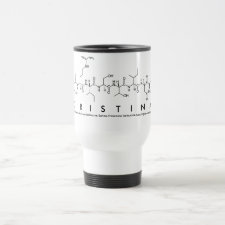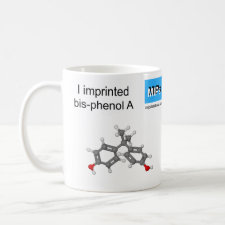
Authors: Canale F, Cordero C, Baggiani C, Baravalle P, Giovannoli C, Bicchi C
Article Title: Development of a molecularly imprinted polymer for selective extraction of bisphenol A in water samples.
Publication date: 2010
Journal: Journal of Separation Science
Volume: 33
Issue: (11)
Page numbers: 1644-1651.
DOI: 10.1002/jssc.201000013
Abstract: A cross-linked methacrylate molecularly imprinted polymer (poly-4-vinylpyridine-co-trimethylolpropane-trimethacrylate) selective for bisphenol A (BPA) was synthesized, using a fluorinated BPA derivative (4,4prime-(hexafluoroisopropylidene)-diphenol) as a mimic template, and applied to the analysis of real-world samples of process and potable waters. The molecularly imprinted polymer also showed a high affinity and selectivity for 17β-estradiol and ethynylestradiol. A method to analyze BPA, 17β-estradiol, and ethynylestradiol at ultratrace levels was thus developed from a screening procedure to monitor endocrine-disrupting chemicals in water samples. The method consists of the BPA-selective cleanup by molecularly imprinted SPE using cartridges packed with the polymer developed, its recovery by stir bar sorptive extraction after ad hoc derivatization to obtain the corresponding BPA-acetate, and its analysis by GC-time window-SIM-MS after online thermal desorption. The method showed good linearity in the working range (R2=0.9969), high repeatability (RSD% < 10.1), recoveries always above 90%, and very low LOD (10pg/L) and LOQ (1ng/L) and can easily be extended to the determination of 17β-estradiol and ethynylestradiol ultratraces. The method's effectiveness was evaluated by analyzing the real-world water samples; it enabled preconcentration and detection of BPA at ultratrace levels
Template and target information: 4,4prime-(hexafluoroisopropylidene)-diphenol, bisphenol A, BPA
Author keywords: bisphenol A, molecularly imprinted polymer, SPE, Stir bar sorptive extraction, water analysis



Join the Society for Molecular Imprinting

New items RSS feed
Sign-up for e-mail updates:
Choose between receiving an occasional newsletter or more frequent e-mail alerts.
Click here to go to the sign-up page.
Is your name elemental or peptidic? Enter your name and find out by clicking either of the buttons below!
Other products you may like:
 MIPdatabase
MIPdatabase









